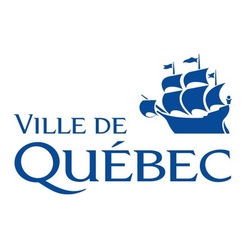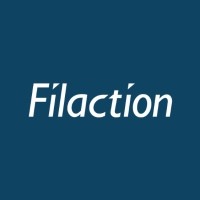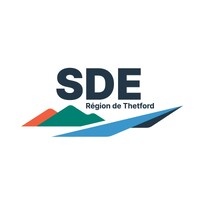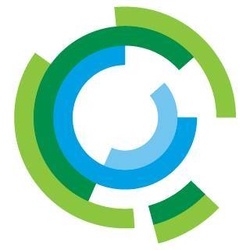Grants and Funding for Financial Services in Quebec in 2026
Accelerate digital transformation, compliance, and growth with public funding. Navigate federal and provincial programs with clarity and confidence.
Quebec’s financial services ecosystem—banks, credit unions, fintech, insurtech, regtech, and payments—can access a wide range of grants, tax incentives, and co‑funding opportunities. In 2026, federal and provincial programs support innovation, cybersecurity, AI, digital adoption, export development, and workforce upskilling. This directory explains key options, eligibility, timelines, and how to structure successful applications.
30 opportunities available

Tax CreditsOpen
Development of E-Business Tax Credit (CDAE)
Investissement Québec (IQ)Tax credit for development of a Quebec e-business
Eligible Funding
- Up to 30% of project cost
Eligible Industries
- Information and cultural industries
- Finance and insurance
- Professional, scientific and technical services
Types of eligible projects
Artificial Intelligence (AI)TechnologyHuman ResourcesInnovationDigital Transformation

Partnering and CollaborationGrant and FundingExpert AdviceSuspended
Financial support to assess your energy use Hydro Quebec
Hydro-QuébecUp to $50,000 for energy performance analysis and optimization
Eligible Funding
- Maximum amount : 50,000 $
- Up to 40% of project cost
Eligible Industries
- Utilities
- Construction
- Manufacturing
- Wholesale trade
Types of eligible projects
Environment and Climate

Grant and FundingOpen
Capitale-Innovation
Quebec CitySupports business innovation, commercialization, and market expansion projects
Eligible Funding
- Maximum amount : 150,000 $
- Up to 50% of project cost
Eligible Industries
- Agriculture, forestry, fishing and hunting
- Manufacturing
- Information and cultural industries
- Finance and insurance
Types of eligible projects
CommercializationArtificial Intelligence (AI)TechnologyEnvironment and ClimateInnovation

Grant and FundingOpen
Entrepreneurial grant
Quebec CitySupports new business creation and structured business succession in Québec
Eligible Funding
- Maximum amount : 25,000 $
- Up to 50% of project cost
Eligible Industries
- Agriculture, forestry, fishing and hunting
- Manufacturing
- Information and cultural industries
- Finance and insurance
Types of eligible projects
CommercializationArtificial Intelligence (AI)TechnologyEnvironment and ClimateHuman ResourcesBusiness BuyoutInnovation

Grant and FundingOpen
Quebec City — Major projects
Quebec CitySupports significant business investments in targeted Quebec City sectors
Eligible Funding
- Maximum amount : 1,000,000 $
- Up to 25% of project cost
Eligible Industries
- Agriculture, forestry, fishing and hunting
- Manufacturing
- Information and cultural industries
- Finance and insurance
Types of eligible projects
Artificial Intelligence (AI)TechnologyEnvironment and ClimateInnovation

Grant and FundingExpert AdviceLoans and Capital investmentsOpen
Startup in residence
DesjardinsInvestment-focused accelerator supporting early-stage Canadian impact tech startups
Eligible Funding
- Maximum amount : 15,000 $
Eligible Industries
- Information and cultural industries
- Finance and insurance
- Real estate and rental and leasing
- Professional, scientific and technical services
Types of eligible projects
TechnologyEnvironment and Climate

Grant and FundingExpert AdviceOpen
Guidance grants
Quebec CityFunding for business growth through specialized consulting services
Eligible Funding
- Maximum amount : 25,000 $
- Up to 30% of project cost
Eligible Industries
- Agriculture, forestry, fishing and hunting
- Utilities
- Manufacturing
- Information and cultural industries
Types of eligible projects
Artificial Intelligence (AI)TechnologyEnvironment and ClimateInnovationDigital Transformation

Grant and FundingArchived
Business Growth — Growth support vouchers
Quebec CityGrant program supports strategic consultancy for business growth
Eligible Funding
- Maximum amount : 25,000 $
- Up to 50% of project cost
Eligible Industries
- Manufacturing
- Information and cultural industries
- Finance and insurance
- Professional, scientific and technical services
Types of eligible projects
TechnologyEnvironment and ClimateInnovation

Grant and FundingClosed
Group Entrepreneurship Capital Program
Investissement Québec (IQ)Supports real estate projects for Quebec social economy enterprises
Eligible Funding
- Maximum amount : 500,000 $
- Up to 50% of project cost
Eligible Industries
- Finance and insurance
- Educational services
- Health care and social assistance
- Arts, entertainment and recreation
Types of eligible projects
Construction and Renovation

Loans and Capital investmentsOpen
Mosaic Fund
FilactionBusiness loans for Quebec's cultural communities entrepreneurs
Eligible Funding
- From $50,000 to $500,000
Eligible Industries
- Construction
- Manufacturing
- Wholesale trade
- Retail trade
Types of eligible projects
Business Buyout

Wage Subsidies And InternsOpen
DuoEmploi – Internships for people with disabilities
Gouvernement du QuébecWorkplace internships for individuals with disabilities in Quebec
Eligible Funding
- No Condition
Eligible Industries
- Construction
- Retail trade
- Information and cultural industries
- Finance and insurance
Types of eligible projects
Human Resources

Loans and Capital investmentsOpen
DEL — Business Acquisition Loan
Développement économique de l'agglomération de Longueuil (DEL)Supports entrepreneurs acquiring businesses for succession and ownership transfer
Eligible Funding
- Maximum amount : 150,000 $
- Up to 25% of project cost
Eligible Industries
- Agriculture, forestry, fishing and hunting
- Mining, quarrying, and oil and gas extraction
- Utilities
- Construction
Types of eligible projects
Business Buyout

Grant and FundingArchived
Défi-Québec, Sustainable City
Quebec CitySupport eco-friendly projects in Québec businesses
Eligible Funding
- Maximum amount : 50,000 $
Eligible Industries
- Manufacturing
- Transportation and warehousing
- Finance and insurance
- Arts, entertainment and recreation
Types of eligible projects
TechnologyConstruction and Renovation Innovation

Loans and Capital investmentsOpen
SDE Thetford — Local Investment Fund (LIF)
Thetford Region Economic Development CorporationBusiness loans for startups, growth, and productivity in Thetford
Eligible Funding
- Maximum amount : 300,000 $
- Up to 50% of project cost
Eligible Industries
- Agriculture, forestry, fishing and hunting
- Mining, quarrying, and oil and gas extraction
- Utilities
- Construction
Types of eligible projects
Business BuyoutDigital Transformation

Grant and FundingClosed
Entrepreneurial Assistance Program (PAEN)
Ministère de l'économie, de l'innovation et de l'énergie du Québec (MEIE)Supports entrepreneurship development and innovative business growth in Quebec
Eligible Funding
- No Condition
Eligible Industries
- Agriculture, forestry, fishing and hunting
- Mining, quarrying, and oil and gas extraction
- Utilities
- Construction
Types of eligible projects
Human ResourcesInnovation

Grant and FundingLoans and Capital investmentsArchived
Québec city — Supporting the development of the Saint-Roch district
Quebec CityFinancial support for business development projects in Saint-Roch
Eligible Funding
- Maximum amount : 500,000 $
- Up to 25% of project cost
Eligible Industries
- Information and cultural industries
- Finance and insurance
- Professional, scientific and technical services
- Arts, entertainment and recreation
Types of eligible projects
Artificial Intelligence (AI)TechnologyInnovationDigital Transformation

Grant and FundingArchived
Social economy support program (PSES) – Stream 2
Social Economy Cluster — Central QuebecSupports development of strategic sectors in Quebec’s social economy
Eligible Funding
- Maximum amount : 500,000 $
- Up to 70% of project cost
Eligible Industries
- Construction
- Manufacturing
- Retail trade
- Transportation and warehousing
Types of eligible projects
Environment and ClimateHuman ResourcesInnovation

Expert AdviceOpen
Quebec International — Set up or expand a business
Québec InternationalSupport to start or grow a business in Quebec City
Eligible Funding
- No Condition
Eligible Industries
- Manufacturing
- Information and cultural industries
- Finance and insurance
- Health care and social assistance
Types of eligible projects
Artificial Intelligence (AI)TechnologyHuman ResourcesBusiness BuyoutInnovationDigital Transformation

Grant and FundingLoans and Capital investmentsOpen
Technology showcase - pre-commercialization of innovation
Quebec CitySupports pre-commercial testing of innovative technologies and products
Eligible Funding
- Maximum amount : 250,000 $
- Up to 50% of project cost
Eligible Industries
- Agriculture, forestry, fishing and hunting
- Manufacturing
- Information and cultural industries
- Finance and insurance
Types of eligible projects
TechnologyInnovation

Grant and FundingClosed
Ascension competition
Quebec City Junior Chamber of Commerce (JCCQ)Pitch competition supporting early-stage entrepreneurs in Quebec City
Eligible Funding
- Maximum amount : 60,000 $
Eligible Industries
- Construction
- Manufacturing
- Retail trade
- Transportation and warehousing
Types of eligible projects
CommercializationInnovation

Expert AdviceOpen
Quebec International — Selling and Exporting — Set your sights on the world
Québec InternationalExporting advice for Quebec City businesses
Eligible Funding
- No Condition
Eligible Industries
- Manufacturing
- Information and cultural industries
- Finance and insurance
- Professional, scientific and technical services
Types of eligible projects
CommercializationDigital Transformation

Tax CreditsOpen
Payroll tax credit – CFI
Revenu QuébecPayroll tax incentive for international financial sector employers in Montreal
Eligible Funding
- No Condition
Eligible Industries
- Finance and insurance
Types of eligible projects
Human Resources

Expert AdviceOpen
Quebec International — International recruiting
Québec InternationalRecruit global talent for your Quebec City business
Eligible Funding
- No Condition
Eligible Industries
- Manufacturing
- Information and cultural industries
- Finance and insurance
- Health care and social assistance
Types of eligible projects
CommercializationHuman Resources

Other SupportLoans and Capital investmentsOpen
Desjardins — Agriculture loans and financing
DesjardinsCustomized agricultural financing and advisory support for farm businesses
Eligible Funding
- No Condition
Eligible Industries
- Agriculture, forestry, fishing and hunting
- Finance and insurance
Types of eligible projects
TechnologyEnvironment and ClimateBusiness BuyoutInnovation

Tax CreditsOpen
Tax credit for a new financial services corporation
Revenu QuébecTax credit for eligible new Quebec financial services corporations
Eligible Funding
- No Condition
Eligible Industries
- Finance and insurance
Types of eligible projects
Human ResourcesInnovation

Grant and FundingOpen
Quebec International — Starting a business and making it grow
Québec InternationalSupport to grow a technology startup in Quebec City
Eligible Funding
- No Condition
Eligible Industries
- Manufacturing
- Information and cultural industries
- Finance and insurance
- Health care and social assistance
Types of eligible projects

Loans and Capital investmentsClosed
Evol — Conventional start-up loan
EvolLoans for diversified and inclusive ownership start-ups in Quebec
Eligible Funding
- From $20,000 to $75,000
- Up to 5% of project cost
Eligible Industries
- Agriculture, forestry, fishing and hunting
- Mining, quarrying, and oil and gas extraction
- Utilities
- Construction
Types of eligible projects
CommercializationBusiness Buyout

Grant and FundingClosed
2023 Call for Proposals
Employment and Social Development Canada (ESDC)Funds to support youth volunteer programming and micro-projects
Eligible Funding
- Maximum amount : 8,000,000 $
Eligible Industries
- Agriculture, forestry, fishing and hunting
- Mining, quarrying, and oil and gas extraction
- Utilities
- Construction
Types of eligible projects

Grant and FundingClosed
Culture and Heritage Grants and Contributions Program - Culture and Heritage
Nunavut Department of Culture and HeritageFinancial aid to promote culture and heritage in Nunavut.
Eligible Funding
- Maximum amount : 75,000 $
Eligible Industries
- Agriculture, forestry, fishing and hunting
- Mining, quarrying, and oil and gas extraction
- Utilities
- Construction
Types of eligible projects

Grant and FundingClosed
BOLT Grant Program
Internet Society FoundationSupports projects expanding global Internet connectivity through prototypes and pilots.
Eligible Funding
- Maximum amount : 300,000 $
Eligible Industries
- Agriculture, forestry, fishing and hunting
- Mining, quarrying, and oil and gas extraction
- Utilities
- Construction
Types of eligible projects
Frequently asked questions about funding for financial services in Quebec
Find clear answers about grants, tax credits, and programs supporting fintech, banks, credit unions, and financial IT projects in Quebec.